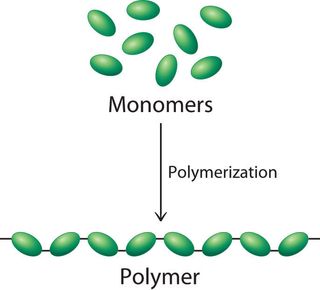Understanding Polymers: The Scientific Research Behind Versatile Products
Understanding Polymers: The Scientific Research Behind Versatile Products
Blog Article
Exploring the Varied Applications and Benefits of Polymers in Different Industries
Polymers, with their diverse array of properties and capabilities, have actually become crucial in numerous industries, each reaping one-of-a-kind advantages from their application. Polymers. From improving security and performance in the auto field to revolutionizing clinical tools in the medical care industry, polymers play a pivotal role. Additionally, their environmentally friendly nature is altering the landscape of sustainability methods. As we dig into the midsts of polymers in electronics, we uncover cutting-edge advancements, while their structural honesty transforms the realm of building and framework. The pervasive influence of polymers throughout sectors is a testimony to their convenience and adaptability, shaping the future of many markets.
Automotive Market Applications
Polymers play a pivotal function in boosting the efficiency and sturdiness of numerous components within the vehicle industry. These flexible products are extensively utilized in the manufacturing of different parts, varying from interior parts to under-the-hood applications. One prominent use polymers in the automobile market remains in the manufacturing of lightweight components. By changing typical steel get rid of polymer-based choices, lorries can attain enhanced fuel effectiveness without jeopardizing on stamina or safety.

Medical Care Market Benefits
In various health care applications, the benefits of using polymers are widely identified for their varied series of valuable residential properties. Polymers play a vital function in the medical care sector as a result of their adaptability, biocompatibility, and cost-effectiveness. Among the primary advantages of polymers in health care is their capacity to be tailored to particular requirements, such as flexibility, durability, and biodegradability, making them optimal for a wide variety of clinical applications.
Polymer-based materials are extensively used in clinical devices, such as catheters, implants, prosthetics, and drug shipment systems, due to their biocompatibility and capacity to resemble all-natural cells. These products can minimize the risk of allergies or denials, improving individual security and outcomes. Additionally, polymers are light-weight, making them ideal for wearable clinical gadgets and ensuring person comfort.
Additionally, polymers enable the development of innovative treatment approaches, such as hydrogels for cells engineering and nanocomposites for targeted medicine delivery. Their convenience of processing and sanitation makes them important for keeping high criteria of health in medical care setups. In general, the diverse advantages of polymers contribute significantly to innovations in clinical technology and individual treatment.
Environmental Advantages of Polymers

In addition, polymers can add to power cost savings as a result of their lightweight nature. In industries such as transport, light-weight polymer products can aid minimize gas intake and greenhouse gas discharges. Furthermore, polymers can allow the advancement of energy-efficient items such as insulation products that improve power conservation in buildings.
In addition, polymers play an essential role in lowering water contamination. For instance, using polymer-based filtering systems can efficiently eliminate pollutants and contaminants from wastewater, safeguarding water sources and environments. In general, the environmental benefits of polymers make them important assets in promoting sustainability and environmentally friendly techniques throughout numerous markets.
Polymers in Electronics and Innovation
Considering the increasing demand for innovative and sustainable options in modern-day markets, the integration of advanced polymer technologies in the world of electronics and technology has become a critical strategy for driving effectiveness and performance. Polymers have actually revolutionized the electronic check my site devices sector by enabling the production of lighter, a lot more versatile, and sturdy digital tools. From smart devices to clinical gadgets, polymers play an essential duty in boosting product design and capability.
One considerable benefit of polymers in electronics is their shielding residential or commercial properties, which help safeguard fragile digital parts from ecological aspects and electric disturbance. Furthermore, polymers are important in the advancement of additional hints adaptable screens, wearable innovation, and printed electronic devices, providing endless opportunities for producing smart and interconnected gadgets.
Moreover, making use of polymers in digital packaging has brought about innovations in miniaturization and thermal administration, enhancing the total performance and integrity of digital systems. As innovation remains to advance, the convenience and flexibility of polymers will most certainly drive further innovation in the electronic devices industry, shaping the future of modern technology.
Duty of Polymers in Building and Facilities
Polymers use various advantages in the building market due to their flexibility, sturdiness, and cost-effectiveness. One vital function of polymers in construction is their usage in coatings and sealers, supplying protection versus environmental factors such as wetness, UV radiation, and deterioration.
In addition, polymers play a vital role in sustainable construction methods by enabling the advancement of energy-efficient structures. Protecting products made from polymers assist manage indoor temperature levels, decreasing the requirement for heating and cooling down systems and inevitably lowering energy consumption. Moreover, making use of polymer-based composites in framework jobs such as bridges and roadways boosts their longevity and minimizes maintenance costs. In general, the unification of polymers in building and framework displays their significant impact on modern-day engineering methods.
Verdict
In verdict, polymers play a crucial role her latest blog in numerous sectors such as automotive, medical care, environmental, electronic devices, and building and construction. From boosting gas effectiveness in lorries to improving medical devices, polymers use countless benefits.
Report this page